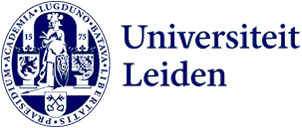
How can the humanitarian disaster in Gaza be stopped?
Famine, bombing of civilians and the almost complete destruction of Gaza. The world looks on at an unfolding humanitarian disaster. Why have our international organisations failed to prevent this tragedy? An interview with Professor Jan Aart Scholte, an expert on globalisation and global democracy.
How do you view the humanitarian situation in Gaza?
‘It is catastrophic and extremely worrying. It is also an artificial disaster, caused by war and blockades. Whatever you may think of the different positions in the conflict, such human suffering should never be allowed to happen. Regrettably, the world has until recently remained largely passive. To be sure, the Israel-Palestine issue is particularly sensitive – we see that within our university as well. But we cannot evade tough discussions and must give them urgent priority.’
Why has international law failed to stop the humanitarian crisis*?
* The International Court of Justice has ordered Israel to facilitate humanitarian aid, and the International Criminal Court has issued warrants against Benjamin Netanyahu, Yoav Gallant and the now-deceased Hamas leader Mohammed Deif.
‘International law and international organisations such as the United Nations can contribute significantly to a peaceful world order, but they cannot accomplish it alone. Their capacity, effectiveness and legitimacy are relatively limited. They have small staffs, inadequate budgets and no armed forces of their own. In addition, the veto power of major states in the UN Security Council inhibits decision-making. In the case of Israel-Palestine, there is profound historical trauma on all sides, and everyone involved has deep ties to the territory. For 80 years the conflict has been steeped in violence, and an international flow of money and weapons continues to fuel war. To counter these tremendous drivers of continued war, international law and international organisations by themselves are woefully inadequate.’
What do you think needs to happen?
‘Other types of pressure are also needed: diplomatic, economic, financial, military, cultural and academic. This pressure will have to be far-reaching if it is to compel the current Israeli government to allow in sufficient humanitarian aid and to pursue serious peace negotiations. Pressure must also come from within Israeli politics and society, but that clearly isn’t enough, so considerable foreign pressure must also be applied on the Netanyahu government. This must come primarily from the West, because those countries provide indispensable support to Israel. Pressure from other parts of the world is symbolically important, but has less material impact. Since the current US administration has little inclination to exert the necessary pressure on the Netanyahu government, the role of Europe, including the Netherlands, becomes more decisive.’
What role do you see for universities?
‘Universities are an important and influential part of society in the Netherlands and Europe. What we do and do not do says a lot about the values in our society. Universities can contribute to international pressure for peace and justice, at appropriate and desired times. Universities in the Netherlands rightly exerted such pressure when they cut institutional ties with universities in Russia after the full-scale invasion of Ukraine. More recently, Leiden University has also expressed support for academic colleagues under siege in the USA.
‘Given the horrific provocation by Hamas, the university’s response to the Israeli invasion of Gaza was initially more restrained. But since then we have seen complete destruction of the academic sector in Gaza and witnessed one of the most severe humanitarian crises on Earth. So now we really must address our university’s relationship to the Israel-Palestine conflict seriously and quickly. As emphasised earlier, this is a very sensitive topic for many, and it must be treated with the utmost care and mutual respect. But avoiding conversation and delaying action is not worthy of Cleveringa’s legacy.’
Banner photo: Palestinians inspect the rubble of a school after the bombing of Jabalia, northern Gaza, on 12 May 2025.
The Israel-Palestine conflict has gripped and divided the academic world for over a year and a half now. Leiden University has set up a special committee to advise on international collaboration, including with universities in Israel. Pending that advice, exchange programmes with two Israeli universities have been on hold since May 2024. The university is organising a campus discussion about Israel-Palestine that will feature various experts. More information will follow soon.
